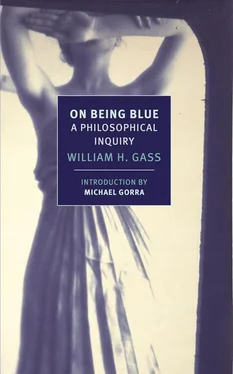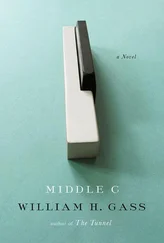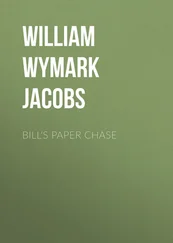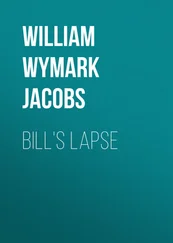2 Thy teeth are like a flock of sheep that are even shorn, which came up from the washing; whereof every one bear twins, and none is barren among them.
3 Thy lips are like a thread of scarlet, and thy speech is comely: thy temples are like a piece of pomegranate within thy locks.
4 Thy neck is like the tower of David builded for an armoury, whereon there hang a thousand bucklers, all shields of mighty men.
5 Thy two breasts are like two young roes that are twins, which feed among the lilies.
These comparisons are always unfairly one-sided and often reveal, as in the singer above, an unpleasant preference for perfume, property, and plunder. One may decide that the nipple most nearly resembles a newly ripened raspberry (never, be it noted, the plonk of water on a pond at the commencement of a drizzle, a simple bladder nozzle built on the suction principle, gum bubble, mole, or birth wart, bumpy metal button, or the painful red eruption of a swelling), but does one care to see his breakfast fruit as a sweetened milky bowl of snipped nips? no.
There’s something of the thimble to them (not enough), and they are frequently described as rosy or said to possess the color of young shoots, but why take the trouble when the trouble taken is so evident and audible and yields such frigid results? Perhaps they are like the lightly chewed ends of large pencil erasers. Yes. When brown, they are another pair of eyes. Or is it the eyes which promise me those rich wide aureoles? I have seen nipples so pulled on and flattened by nursing, they hung there like two tiny tongues.
D’Annunzio may write that ‘long trailing vapours slid through the cypresses of the Monte Maria like waving locks through a comb of bronze,’ and though the comparison is highly decorative, it is not absurd to imagine on the obverse of the metal a maiden’s blond tresses, as she prepares her hair for a night of love, passing through the tines of her comb of bronze like trailing vapours through a row of cypresses. But may I comfortably think of those sheep as wandering teeth?
There’s no tit for tat in this poetry, which is, after all, the sort of erotic verse preferred by those who once loved to listen (and if they could, would still, sweet dears) to Madame Melba, freshly risen from her death as Mimi and now surrounded by bouquets, while accompanying herself on a baby grand wheeled opportunely from the wings to the center of an emptied stage, warble ‘Home Sweet Home’ and ‘The Last Rose of Summer’ in the intervals of silence between applauding palms.
Oh! ah! ai! alack and alas! ahimè! but what is love? how best speak of the beauty of women? account for the soul’s deep swoons without confusing them with the greedy swoops of a gull after herring? explain the blue of serge or chicory, or ordinary sky, the iris and the pansy blue of melancholy, the still intenser blue of the imagination?
It is Orlando’s problem too, and Orlando finds that every subject he (and he will not suffer his sex change until the eighteenth century) wishes to pursue so embroiled, cluttered, and betangled with every other that it appears impossible for him to say a single, simple, clear, true thing.
… he tried saying the grass is green and the sky is blue and so to propitiate the austere spirit of poetry whom still, though at a great distance, he could not help reverencing. ‘The sky is blue,’ he said, ‘the grass is green.’ Looking up, he saw that, on the contrary, the sky is like the veils which a thousand Madonnas have let fall from their hair; and the grass fleets and darkens like a flight of girls fleeing the embraces of hairy satyrs from enchanted woods. ‘Upon my word,’ he said (for he had fallen into the bad habit of speaking aloud), ‘I don’t see that one’s more true than another. Both are utterly false.’ And he despaired of being able to solve the problem of what poetry is and what truth is and fell into a deep dejection.
Conrad also rather bitterly complained, regarding the precision of his elected language, that writing in English was like throwing mud at a wall. But blueness fuddles every tongue like wine.
Pierre Louys, whose credentials are impeccable, being both French and pagan, at least achieves originality:
Thy breasts are two vast flowers, reversed upon thy chest, whose cut stems give out a milky sap. Thy softened belly swoons beneath the hand.
However, I fear that Dr. Johnson would find his effort too metaphysical.
We appear to be reduced to apostrophe: the elegant Gee Whiz. Certainly nothing else will do for fellatio, which has never had its poet. Even our aforementioned D’Annunzio, by training perfectly equipt, cannot do much more than moan ornately.
O sinuous, moist and burning mouth, where my desire is intensified when I am sunk in deep oblivion, and which relentlessly sucks my life. O great head of hair strewn over my knees during the sweet act. O cold hand which spreads a shiver and feels me shivering.
Yet in the moment that our situation seems to have become impossible (as bereft of hope as Virginia Woolf’s Orlando has imagined it to be), deus ex machina: we recollect the honest masters of our tongue, and in them, on occasion, we find the problem solved, the tribute paid, the vision pure, the writing done. In Ben Jonson, for instance:
Have you seene but a bright Lillie grow,
Before rude hands have touch’d it?
Ha’ you mark’d but the fall o’ the Snow
Before the soyle hath smutch’d it?
Ha’ you felt the wooll of Bever?
Or Swans Downe ever?
Or have smelt o’ the bud o’ the Brier?
Or the Nard in the fire?
Or have tasted the bag of the Bee?
O so white! O so soft! O so sweet is she!
Initially I wrote of displacement as if it went from thing to thing — phallus to flower:
Full gently now she takes him by the hand,
A lily prison’d in a gaol of snow,
Or ivory in an alabaster band;
So white a friend engirts so white a foe…
but I have been dropping hints all along like heavy shoes that the ultimate and essential displacement is to the word, and that the true sexuality in literature — sex as a positive aesthetic quality — lies not in any scene and subject, nor in the mere appearance of a vulgar word, not in the thick smear of a blue spot, but in the consequences on the page of love well made — made to the medium which is the writer’s own, for he — for she — has only these little shapes and sounds to work with, the same saliva surrounds them all, every word is equally a squiggle or a noise, an abstract designation (the class of cocks, for instance, or the sub-class of father-defilers), and a crowd of meanings as randomly connected by time and use as a child connects his tinkertoys. On this basis, not a single thing will distinguish ‘fuck’ from ‘fraise du bois’; ‘blue’ and ‘triangle’ are equally abstract; and what counts is not what lascivious sights your loins can tie to your thoughts like Lucky is to Pozzo, but love lavished on speech of any kind, regardless of content and intention.
It is always necessary to deprive the subject of its natural strength just as Samson was, and blinded too, before recovering that power and replacing it within the words. Popeye is about to rape Temple Drake with a corn-cob (in a corn-crib, too, if you can bear the additional symbolism):
… Popeye drew his hand from his coat pocket.
To Temple, sitting in the cottonseed-hulls and the corn-cobs, the sound was no louder than the striking of a match: a short, minor sound shutting down upon the scene, the instant, with a profound finality, completely isolating it, and she sat there, her legs straight before her, her hands limp and palm-up on her lap, looking at Popeye’s tight back and the ridges of his coat across the shoulders as he leaned out the door, the pistol behind him, against his flank, wisping thinly along his leg.
Читать дальше












